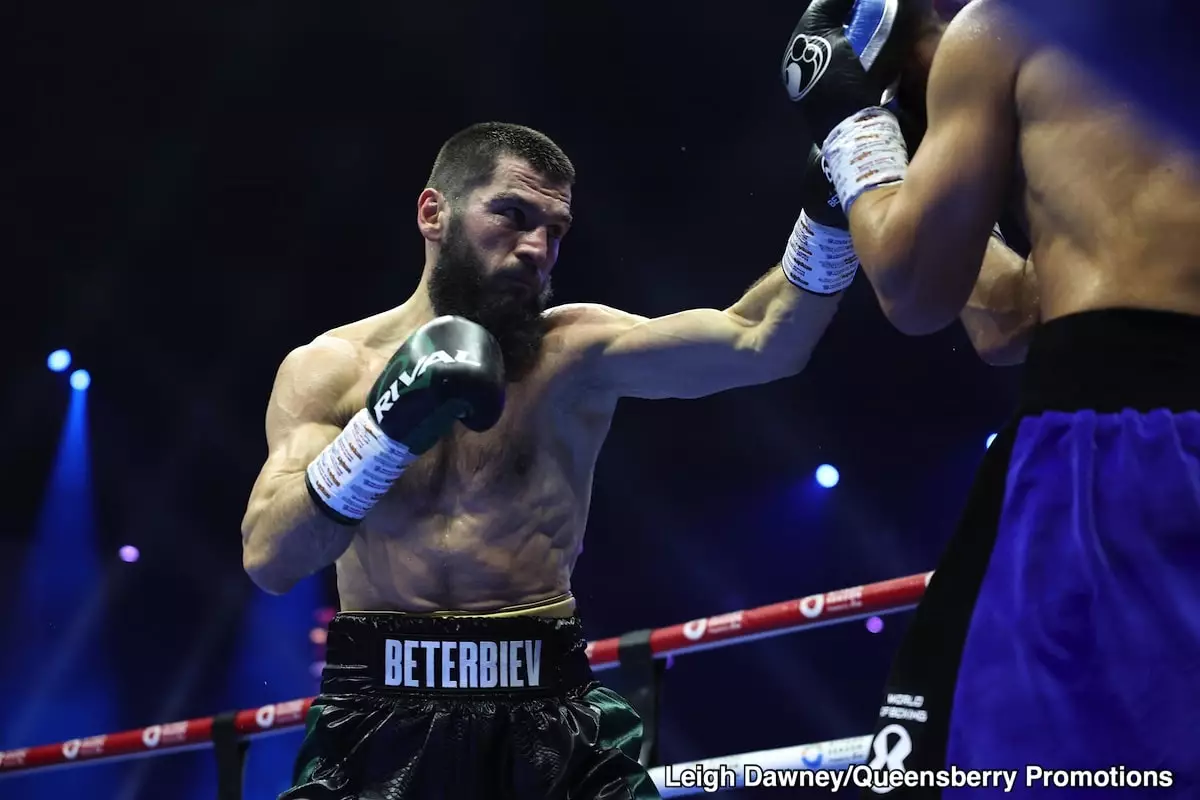Boxing’s pound-for-pound rankings often ignite debate among fans and analysts alike. Recently, Ring Magazine updated its list, which sparked controversy, particularly with the positioning of new undisputed light heavyweight champion Artur Beterbiev and his opponent Dmitry Bivol. Such evaluations are pivotal not only for the boxers’ reputations but also for the sport’s integrity as a whole.
Following his victory over Bivol, Beterbiev ascended to a prominent spot in the rankings. However, Bivol’s placement, despite his loss, raises eyebrows. With a record of 23 wins and one defeat, Bivol should arguably experience a decline in his ranking given that he was decisively bested in a majority decision. The decision by Ring Magazine to elevate Bivol instead feels disingenuous, suggesting a normalization of underperformance by favoring past accolades over current realities. This trend creates an unsettling precedent where fighters are rewarded more for legacy than for recent performance, ultimately undermining the meritocratic nature that boxing aspires to uphold.
Canelo Alvarez, once a dominant contender in the pound-for-pound discussion, has seen his stock plummet following a series of underwhelming performances. After his loss to Bivol two years prior, Alvarez has faced increasingly questionable opponents like Edgar Berlanga and Jaime Munguia. Each of these matchups has failed to recapture the brilliance that once characterized his career. The erosion of Canelo’s ranking reflects a more profound issue: fighters must consistently challenge themselves against top-tier opponents to maintain their standing. When viewed through this lens, the Ring’s decision to keep Canelo in a relatively high position despite his trajectory only confuses the rankings further.
Disparities in Ranking Criteria
The contrasting cases of other fighters like Naoya Inoue and Terence Crawford further illustrate the list’s inconsistencies. Despite securing a position at number two, some experts question Inoue’s classification due to a lack of formidable opposition and his reticence in moving up weight classes. Boxing purity demands that fighters embrace challenges, proving their mettle against stronger adversaries. Inoue’s hesitance not only hampers his legacy but also dilutes the essence of the pound-for-pound discussion.
Crawford presents another conundrum; his inactivity and subpar performance against lesser competition have led to calls for his reevaluation. A drop in ranking would seem logical, as the essence of these rankings should celebrate active fighters who exhibit impressive performances rather than maintain status quo for privileged names.
Lastly, the inclusion of Devin Haney, who recently suffered a lackluster defeat, further complicates the rankings’ credibility. Leaving Haney on the list seems unfounded, as his recent performances have not reflected the caliber expected from a pound-for-pound contender. The decision to retain him despite disappointing showings only serves to diminish trust in the rankings.
The latest updates to Ring Magazine’s pound-for-pound list reveal deep-seated issues about evaluating fighters based on their recent performances versus their historical significance. The boxing community must advocate for a transparent, performance-based criterion to uphold the integrity and excitement of this cherished sport.

